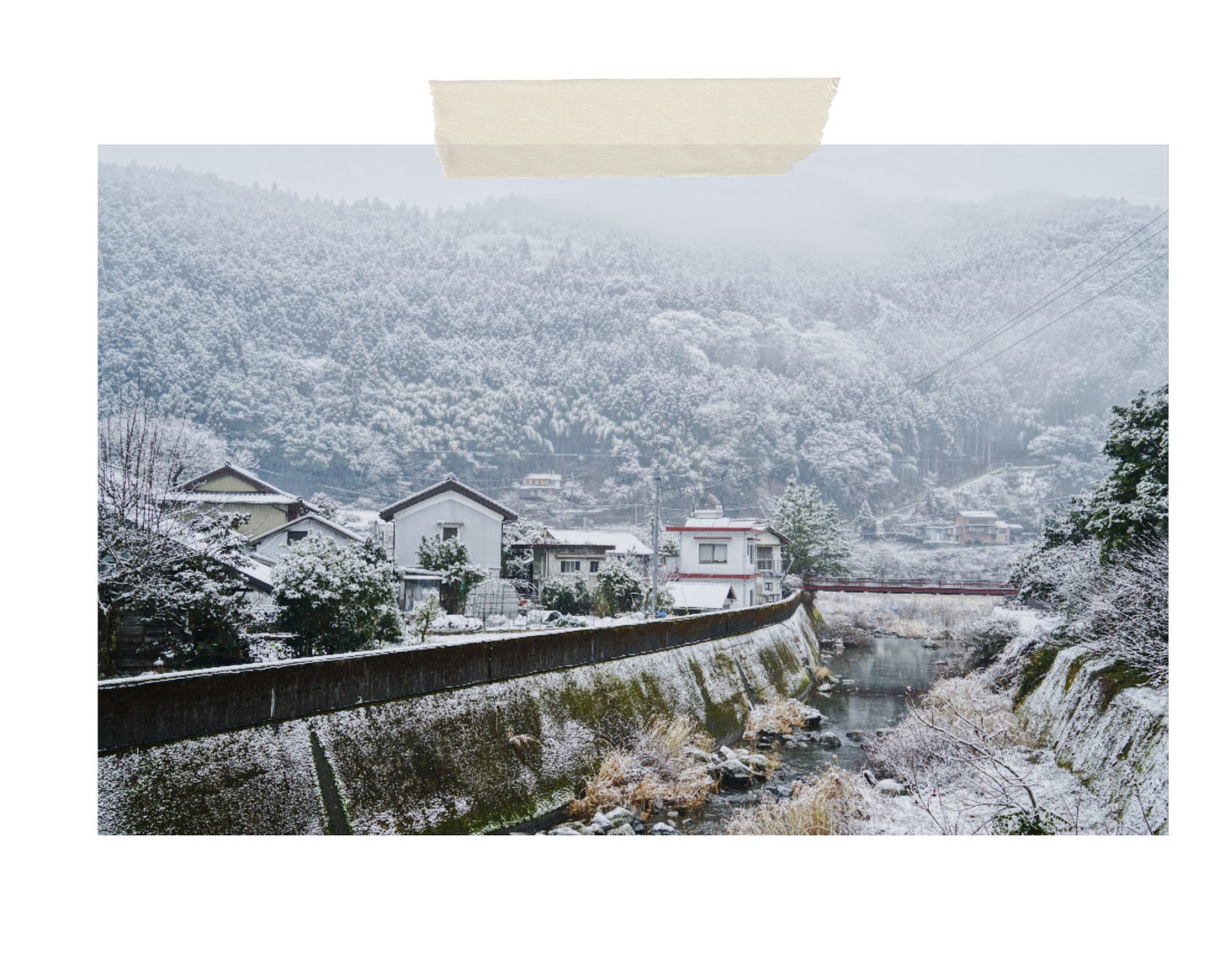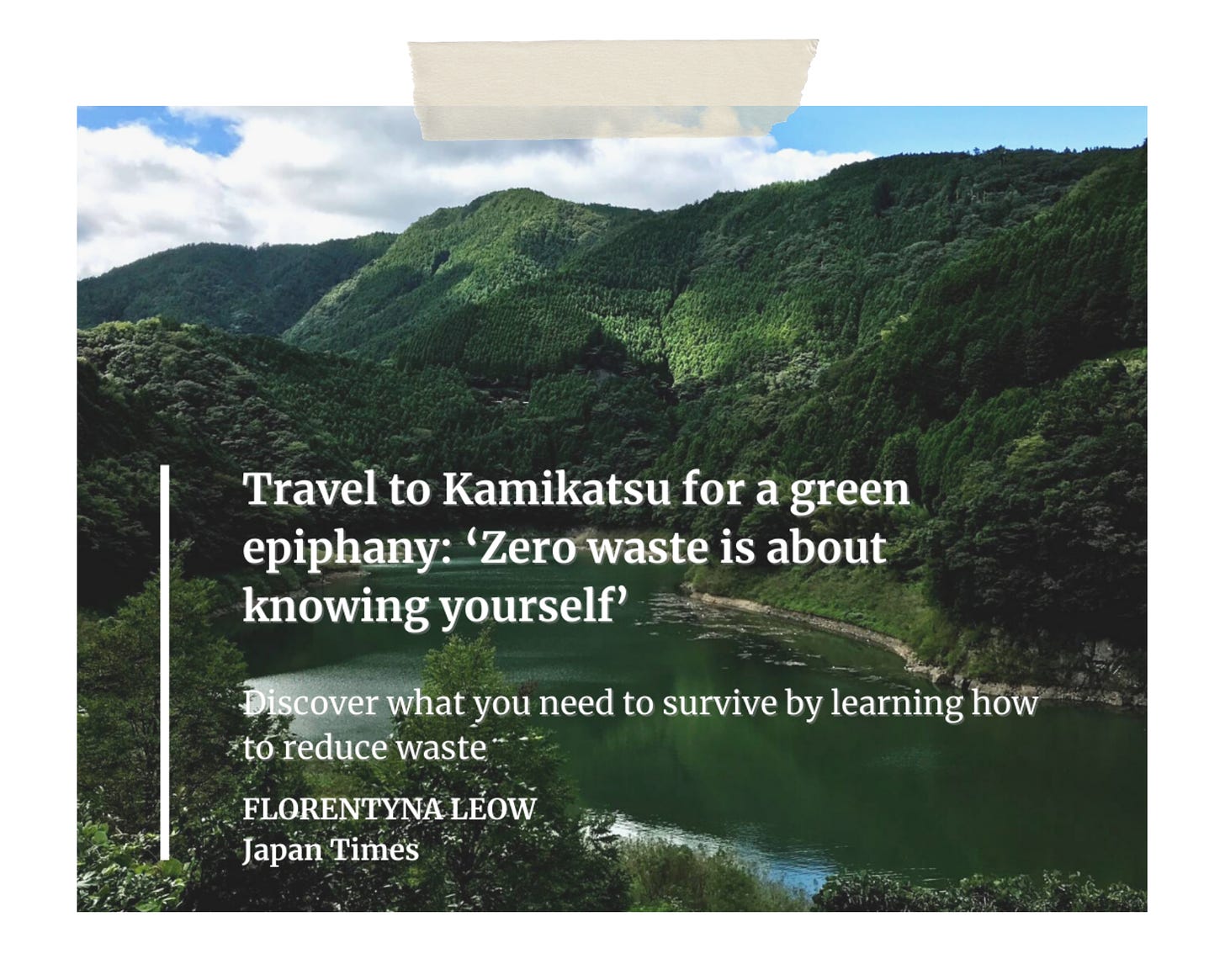Hello reader, thanks for being here! I’m Kana and this is the Sunday edition of Tending Gardens, which you can read about here.
If you like it and want more like it in your inbox, consider subscribing.
Before deep-diving into several ideas, I wanted to say thank you for opening this ‘letter’. It means a lot to know you’re interested. This newsletter is still taking shape and I wanted to start this with a few thoughts on writing.
Rediscovering the joy of writing
I have always enjoyed writing. I have enjoyed it to the extent that it was always personal. There have been many moments in the past decade when the urge to share the inner voice with the outer world manifested into attempts at blogging.
In looking back and reflecting on why blogging never continued, I can see that each time my inner critic got the best of me. This inner voice that feels like the writing isn’t good or compelling filled me with the paralyzing doubt that I was either embarrassing or, worse, disappointing others. I also felt that you needed to reach some sort of level of expertise to write things worth sharing. I see now how that was a lot of belittling self-talk and stemmed from a lack of confidence, and it’s taken me years of letting go of what other people think to write simply because I enjoy it.
The inner voice telling me that the writing wasn’t good enough squandered all room for experimentation, play, and exploration. But writing now, writing again, I recognize that writing allows me to thoughtfully remember my experiences, both positive and negative, and share that journey of self-discovery with others. The joy of writing has been reignited and it feels amazing.
Snowy Kamikatsu
It snowed in Kamikatsu this week, and although the white blanket didn’t linger for long, it was magical to see treetops and rooftops dusted in snow. There’s a unique kind of stillness and quiet that only snowfall brings, as if the world pauses to take a breath.
Watching the flurry of snow in the air stirred two contrasting feelings in me. On one hand, it made me yearn for the cozy warmth of shelter—finding rest by a heater, wrapped in blankets. On the other, it awakened a childlike curiosity to step outside and rediscover the magic of snow. This week, I found a lovely balance between the restful comfort indoors and the simple joy of exploring outside.
The night before the big snowfall, I noticed my host family turning on all the taps, letting water trickle from each faucet. At first, I was puzzled, but they explained it was to prevent the pipes from freezing—a simple yet critical precaution I’d never considered before. Growing up in the city, I had no idea that frozen pipes could burst, causing major water damage. A couple of families in the village learned this the hard way when they didn’t leave their water running and ended up with costly repairs. It was a humbling reminder of how intertwined our homes are with the forces of nature, especially in the countryside.
Moments like these remind me how much I still have to learn about living close to nature. In the city, I rarely gave a second thought to the inner workings of a home, where we’re more insulated from the elements. Here in the countryside, I’m struck not only by nature’s beauty but also by its power—its quiet strength that demands respect and awareness.
Rediscovering an old book
Back to the topic of rediscovery. I recently rediscovered and reread a book called Small is Beautiful, an economic treatise by E.F. Schumacher (a German economist) in 1973. I read this book towards the end of university, but I wish I read it before or early on in my business degree because it would have helped me better grapple with my discomfort with some of the ideologies that were being taught.
I vividly remember feeling queasy throughout my first years in school while learning about capitalism, finance, growth, and profit and shareholder maximization. It was difficult to articulate why at the time, but if I tried to pinpoint the source of the discomfort it was probably the lack of humanness in all of it.
We talked about corporate social responsibility, sustainability, and business ethics in school, but most of it felt superficial. Everything about the corporate world felt bleak—shiny on the outside and hollow on the inside. I remember wondering if the things I felt were most important to me, such as human relationships and fulfilling purpose, were at odds with the kind of ‘success’ I was being taught.
This book helped put my feelings into words and showed me an alternative to business as usual. He called his idea ‘people-centred economics’ that, in his view, would enable environmental and human sustainability. It was a path where relationships, craft, and the environment could be at the heart of the way of working.
“An attitude to life which seeks fulfilment in the single-minded pursuit of wealth—in short, materialism—does not fit into this world, because it contains within itself no limiting principle, while the environment in which it is placed is strictly limited.”
― E.F. Schumacher, Small Is Beautiful: Economics as if People Mattered
I also thought a lot about Kamikatsu (my current home in rural Japan) while re-reading this book. I see the smallness of scale and how, as a village, we can produce what is needed for and within the community. As humans, we yearn for systems within our reach—we care about things we can understand. To quote Jane Goodall, ‘Only if we understand, can we care’.
The ‘smallness’ that Schumacher talks about is a shift away from ‘gigantism’ (a term he coined that describes the concentration of wealth in the hands of global corporations at the expense of local communities) and towards one where “the production from local resources for local needs” is met.
“Man is small, and, therefore, small is beautiful,” he wrote. Our basic needs are simple; it’s our wants that lead to excesses.”
― E.F. Schumacher, Small Is Beautiful: Economics as if People Mattered
Having recently re-read the book, I can truly appreciate the mixture of philosophy, environmentalism, and economics. Small is Beautiful represents a call for humans to see themselves as being part of nature rather trying as a force of domination and control. Despite our increased wealth as a society, we are no happier and his response to the ailments of society is to scale back—prioritize human needs, human relationships, and fostering stewards of the environment.
The educational tourism program I’m running in Kamikatsu called ‘INOW’ was featured in The Japan Times this week! Contributing writer (and long-time friend) Florentyna Leow shares her experience in Kamikatsu in this very insightful read.
If you have any comments, please let me know. I’m learning and I recognize the immense room to grow.
Take care,
Kana
I’d love for you to think of me as your penpal—sharing a note from a tiny village in Japan. With Tending Gardens, I want to bring you a small joy in the form of a newsletter. If you like it and want more like it in your inbox, consider subscribing.






